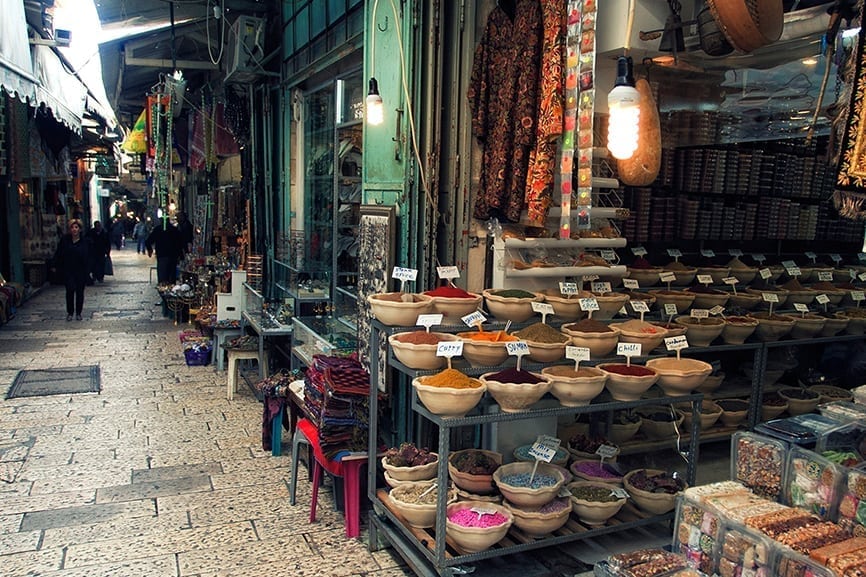Anyone who is interested in history, culture, nature and simply having fun – should visit Israel. Israel may be a very small country, but it is full of good things and places you should visit: cosmopolitan cities, pleasant towns, a flourishing countryside, gorgeous beaches, deserts, mountains and green parks. Its people are friendly and welcoming, the food is fresh and fabulous and there’s always something interesting to do: visit a historic site, go to a museum, suntan on the beach, do extreme sports, go shopping, party like crazy, dine out, see a show, visit the market or simply walk the streets and do some people-watching.
The people of Israel are probably its most interesting feature. A melting pot of various cultures (Israelis’ origins can range anywhere from Morocco, Poland, Iraq, Russia, Yemen, Germany, Turkey, France, India, Ethiopia, Spain, Hungary, Syria and more), some Jewish customs and traditions have become a general rule for all Israelis, while others depend on the place of origin. And that’s just speaking of Jewish traditions: add Arabs (Muslims and Christians) and Druze into the mix and you’re bound to have a fascinating, if confusing, cultural experience in Israel. Even after going back home, you’ll remember Israeli people and culture – they’re simply unforgettable.
To give you a general idea of the culture of Israel, here a few pointers that will help you understand the curious phenomena you’ll be witnessing when visiting the country.
Religion in Israel – the basics
Holy land of Israel is known to be a significant pilgrimage destination, yet when travelling in Israel, it’s very useful to be familiar with Israeli customs and behaviors as well. Religion is quite a significant part of Israeli culture, probably more than it is in most Western countries. Here are some things you should know about religion in Israel:
- Judaism is Israel’s official religion, and 78% of the country’s inhabitants are Jewish. 18% of the people in Israel are Arab Muslims, 2% are Christians (mostly Arab Christians) and 1.6% are Druze (a small ethnoreligious group which has its own religion).
- Within Jewish Israelis, there are various religious affiliations: 49% are secular, 29% are traditional (practice most traditions but lead a semi-secular life), 13% are orthodox and 9% are ultra-orthodox. Orthodox and ultra-orthodox Israelis can be recognized by their modest clothing, which includes various headdresses (or wigs) and long skirts or dresses for women; and a kippah or a black hat for men. Ultra-orthodox men usually wear black suits and white button-down shirts.
- Jerusalem is highly important to Jews, Muslims and Christians alike as it is home to historic sites with special significance to all three religions.
- For religious reasons, Israel observes the Shabbat, which means that Saturday is the national day of rest. From sunset on Friday to sunset on Saturday all stores are closed and no public transport is operating except for taxis.
- Many Israelis, including secular Israelis, eat only kosher (food that conforms to Jewish dietary laws, such as not mixing dairy and meat in the same meal). Many restaurants in Israel are kosher, which also means they are closed on Shabbat. However, non-kosher restaurants are also quite easy to find, especially in big cities like Tel Aviv.
- When visiting religious sites or mostly religious cities (such as Bnei Brak or certain parts of Jerusalem), it is advisable for men and women to dress modestly or they might be frowned upon. For men this means a kippah or at least a baseball cap; and not wearing shorts or going shirtless. Women should dress in a way that doesn’t expose their shoulders or legs.
Travel etiquette, or, how to communicate with Israelis
Most Israelis know at least some basic English and will do their best to communicate with you if you ask them for directions or any other kind of help, but will also highly appreciate it if you make an effort to learn some basic Hebrew words, such as:
- “Shalom” (hello/goodbye, also means “peace”)
- “Toda” (thank you)
- “Slicha” (sorry/excuse me)
- “Sababa” (Israeli slang meaning “okay” or “it’s all good”)
- “Kama Ole?” (how much does it cost?)
It is widely known that Israelis are very direct, sometimes even rude or aggressive – but this is simply the Israeli way to communicate and does not necessarily mean anything negative. Here are some things you’ll probably encounter when communicating with Israelis but should not be alarmed about:
- During a conversation, they make eye contact and expect you to do the same
- They speak loudly and use hand gestures all the time
- They are likely to ask personal questions about your salary, rent and mortgage and share similar information with you; in Israel these are legitimate topics for discussion, even among strangers
- They speak to strangers freely while standing in line or waiting at a bus station
Don’t worry – just enjoy Israeli hospitality
While the customs related above might seem foreign or even alarming to you, you shouldn’t worry about them too much. Most Israelis are very kind, hospitable and accommodating, and will often go out of their way to help you and make you feel comfortable. In addition, modern Israeli culture is quite westernized, and you’ll find that most people are well familiar with international brands, personalities, TV shows and foods; you won’t feel a stranger for too long.


